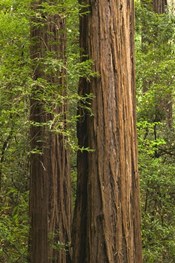There has been an increase in the number of people cutting down healthy landscape trees in Fulton and Montgomery counties. Many of these trees are going to be used to combat rising heating costs. Before an owner cuts down the trees around his or her house, it is important to consider the effects that they are already having on heating and cooling bills. It is possible that landscape trees are doing more to curb energy costs now than they would as firewood.
Trees and shrubs can save a homeowner 25% on heating costs and up to 50% on cooling costs each year, according to Colorado State University Extension. The main ways that trees and shrubs reduce energy costs are by blocking wind and shading the home.
Windbreaks, which are made of small trees or shrubs, reduce air flow into the home. On windy winter days, air can be forced into cracks and crevasses of a home. This cold air pushes warm air out of the house. Reducing the amount of wind hitting the house reduces this problem.
Both warm and cold air are lost from the home by conduction, which occurs when energy moves through the walls of the house. A home’s insulation plays a big role in how much conduction can occur, but trees can help reduce conduction in the summer by cooling the air around the home by as much as 9º F. This is especially true in mobile homes, which have relatively large surface area and can have relatively little insulation, according to Michigan State University.
Tree and shrub placement is very important when considering energy conservation. The diagrams from Colorado State University Extension show the ideal placement of trees and shrubs. Deciduous trees lose their leaves in the winter and include maples, oaks, locusts, birch, and others. Evergreens include spruce and pines, hemlock, arborvitae, and other plants that do not lose their leaves.




